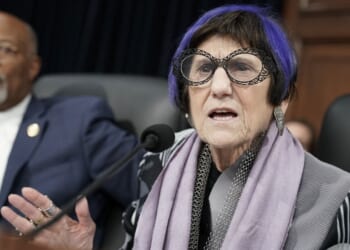The Government’s national grooming gangs inquiry now faces an “impossible” task of regaining the confidence of survivors after a string of high-profile resignations, a leading abuse lawyer has warned. Alan Collins, partner at Bolt Burdon Kemp, said the credibility of the inquiry had been “seriously undermined” following the departure of four women from its Victims and Survivors Panel, including Fiona Goddard and Ellie-Ann Reynolds, who accused officials of creating a “toxic” and “controlling” environment.
Mr Collins told Express.co.uk: “For the inquiry to have public confidence, it must be seen as effective, independent, and — very importantly — have survivor buy-in. Absent survivor support and input, it will be doomed to criticism whether unfair or not. The resignations have caused those who want the inquiry to recoil. Restoring trust is going to be a major challenge — and perhaps impossible.”
Survivors said they quit after being sidelined from decision-making and ignored when raising concerns about leadership and scope. Ms Goddard described “condescending and controlling” language from officials, while Ms Reynolds said the experience left her “isolated and depressed”, adding she would not re-join “even if my life depended on it”.
The inquiry, announced in June, was designed to investigate how local authorities and police forces failed to prevent decades of abuse by grooming gangs across towns and cities in England. But within months of its creation, it has descended into acrimony over who should lead it and how widely it should range.
Mr Collins said the resignations had exposed “deep-seated institutional mistrust” that may now be impossible to repair.
He said: “There is a perception — widely held, and possibly justified — that the Government did not want this inquiry and was dragged by the heels to agree to it. Survivors who were disbelieved in the past now feel dismissed again. They’ve caused avoidable distress. Restoring trust will be extremely difficult, maybe impossible.”
He added that the structural problems ran far deeper than personalities. “The oversight process is in disarray, and survivors have recoiled. To get the inquiry back on track will require clear, unambiguous leadership and a chair who commands confidence — someone willing to follow the evidence wherever it leads, however uncomfortable.”
Survivors’ criticisms have centred on two points: the shortlist of potential chairs — one a former police chief, another a senior social worker — and attempts to broaden the scope of the inquiry beyond street-based grooming gangs into wider child sexual exploitation. They argue this risks “watering down” the focus on the systemic failures that allowed networks of abusers to operate with impunity.
One candidate, former Lambeth children’s services director Annie Hudson, has since withdrawn after widespread criticism. The Home Office has yet to confirm who will now lead the inquiry or how survivors will be involved in the next stage.
The resignations have left ministers scrambling to contain the fallout. Environment Secretary Emma Reynolds apologised to the women, admitting the government had “work to do” to rebuild trust. Home Secretary Shabana Mahmood insisted the inquiry’s scope “will not change”, saying it would remain focused on “delivering justice” for victims of “predatory monsters”.
In the Commons, Sir Keir Starmer moved to steady the process, insisting the inquiry “is not and will never be watered down”. He told MPs: “Its scope will not change. It will examine the ethnicity and religion of offenders, and we will find the right person to chair the inquiry.”
Sir Keir confirmed that Dame Louise Casey, who led a national audit of group-based child sexual exploitation earlier this year, would “support the work of the inquiry”. Her 2025 report found that public bodies had repeatedly avoided addressing cultural and ethnic factors in grooming cases “for fear of appearing racist”.
Baroness Casey’s appointment — following her earlier reviews into Rotherham Council, homelessness, and the Metropolitan Police — is intended to restore credibility to a process already mired in mistrust.
But for many survivors and campaigners, that reassurance may come too late. As Mr Collins warned: “The country is owed an inquiry, and in particular the survivors. But without their trust, the whole thing risks collapsing before it even begins.”















